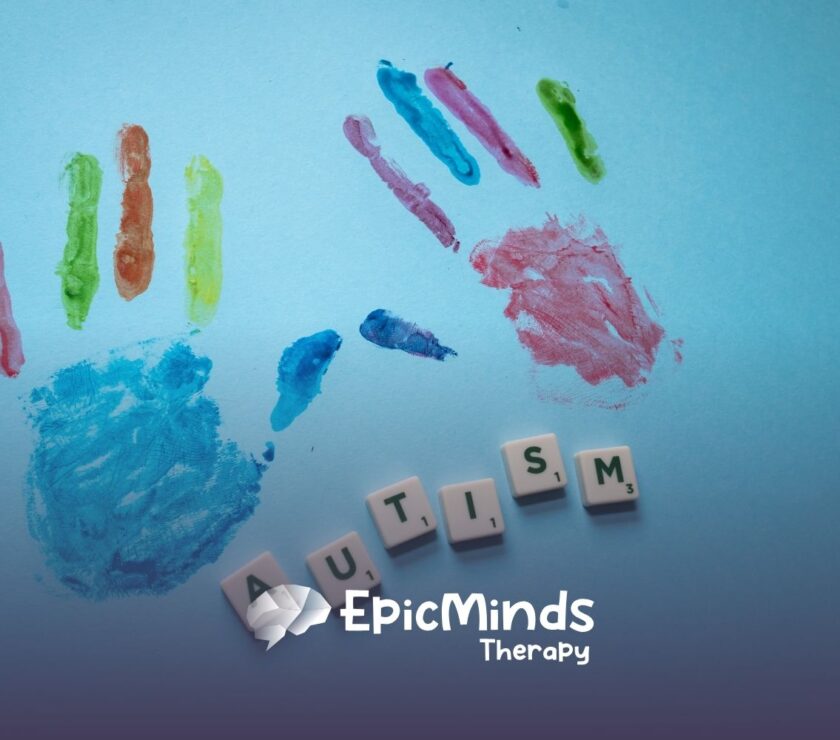Key Highlights
- Autism spectrum disorder (ASD) is a developmental disability that begins early in life, affecting brain development, social interactions, and communication.
- Genetic influences such as inherited traits and mutations like fragile X syndrome play a major role in autism risk.
- Environmental factors including prenatal exposures and maternal health, birth complications, and older parents are key autism risk factors.
- Neurological causes like differences in brain development and neurotransmitter activity contribute to ASD symptoms.
- Early intervention, tailored therapies, and support systems can greatly enhance the quality of life of children with ASD.
There’s no one-size-fits-all explanation for autism—but we do know a lot about the factors that contribute to it. And that knowledge helps us support kids better.
One parent I worked with in in-home ABA therapy was relieved to learn that autism isn’t caused by anything she did or didn’t do. “So it’s not my fault?” she asked. Absolutely not. Understanding the causes can lift a weight off your shoulders—and help you move forward with confidence.
This guide explains the top causes of autism in a way that’s simple and clear. We’ll look at how genetics, the environment, and the brain all play a part.
Genetics and Autism: Why Family History Matters
How Genetics Influence Autism
Autism often runs in families, which points to a strong genetic link. If one child in the family is diagnosed, the chance of another sibling also having autism goes up. Certain genes that help with brain development and communication may raise the risk.
Some of these gene changes are passed down from parents, while others can happen unexpectedly. Either way, they can affect how the brain develops and functions.
Genetic Conditions Linked to Autism
Some specific conditions are closely connected to autism. These include:
| Genetic Condition | Impact on Autism Risk |
| Fragile X Syndrome | Linked to intellectual disabilities and autism |
| Tuberous Sclerosis | May cause benign brain tumors and developmental delays |
| Rett Syndrome | Affects head growth, movement, and communication skills |
These genetic links help doctors and researchers better understand autism and develop ways to diagnose and support those affected.
Why Heredity Plays a Role
If autism is already present in your family, it doesn’t mean someone else will definitely have it—but the risk is higher. This is especially clear in identical twins, where if one twin has autism, the other is more likely to have it too.
Family members might also show milder signs—like social challenges or a need for routines—even without a formal diagnosis. Understanding this heritability helps families make informed decisions about early screening and support.
Environmental Factors and Autism Risk
How Prenatal and Birth Conditions Affect Autism
Alongside genetics, environmental factors can also play a role in autism risk—especially those that occur during pregnancy or around birth. These include:
- Maternal health issues – High stress levels or certain infections during pregnancy can impact brain development.
- Exposure to harmful substances – Some medications or toxins in the womb may increase risk.
- Older parental age – Children born to older parents may have a slightly higher chance of developing autism.
- Low birth weight or premature birth – These factors are often linked to developmental delays, including autism.
Understanding these risks helps parents and healthcare providers take steps toward early detection and support.
Birth Complications and Early Warning Signs
Problems during delivery—like a lack of oxygen or emergency C-sections—can also affect a baby’s development. In some cases, these challenges are linked to later diagnoses of autism.
After birth, delays in reaching developmental milestones—like smiling, babbling, or responding to names—can be early indicators. While not every delay means autism, it’s worth discussing with a pediatrician if there are concerns.
Brain Development and Autism
Brain Differences in Autism
People with autism often show differences in how their brains develop and function. These differences aren’t “bad”—they’re just different ways of processing the world. Still, they can explain why some individuals have trouble with things like sensory input or understanding emotions.
Here are a few areas of the brain that researchers have found to be different in people with autism:
| Brain Region | Role in the Brain | Possible Effects in Autism |
| Amygdala | Emotional processing and social behavior | May affect how social cues are recognized |
| Corpus Callosum | Connects the brain’s hemispheres | May impact coordination and communication |
| Prefrontal Cortex | Planning, focus, and decision-making | May lead to rigid thinking or difficulty adapting |
These differences don’t define someone’s potential—they simply offer clues about how autism works in the brain.
The Role of Brain Chemicals
Neurotransmitters—chemicals that help brain cells talk to each other—also seem to work differently in people with autism. Some of the most studied ones include:
- Serotonin – Helps regulate mood and social behavior
- Dopamine – Involved in motivation and attention
- GABA and glutamate – Affect how the brain responds to stimulation
When these systems are out of balance, it may lead to issues with focus, sensory sensitivity, or hyperactivity—symptoms sometimes seen in both autism and ADHD.
Why Early Support for Autism Matters
The Power of Early Intervention
While there’s no known “cure” for autism, early support makes a real difference. With tools like speech therapy, occupational therapy, or applied behavior analysis (ABA), children with autism can build skills that help them communicate and become more independent.
Every child is unique, so care should be tailored to their needs and strengths. A diagnosis is not the end—it’s a step toward understanding and empowerment.
Conclusion
Autism is a complex condition with no single cause. It’s shaped by a mix of genetics, environmental influences, and brain development. Understanding these causes helps families, educators, and healthcare providers offer the right support at the right time.
Whether you’re a parent, teacher, or just someone who wants to learn more, knowing the early signs and risk factors can make a big difference. When we approach autism with knowledge and empathy, we create a more inclusive world for everyone.
If you’re navigating a new autism diagnosis or wondering how to best support your child, you’re not alone—and you don’t have to figure it all out on your own.
At Epic Minds Therapy, we offer compassionate, personalized ABA therapy designed to help children with autism reach their full potential.
Our team partners with families to create meaningful, effective plans based on each child’s strengths and needs. Whether you’re just starting the journey or looking for a better fit, we’re here to walk it with you.
Contact Epic Minds Therapy today to schedule a free consultation and learn how we can help.
Frequently Asked Questions
Is autism caused by vaccines?
No, vaccines do not cause autism. Numerous large studies have confirmed that there is no connection between vaccines and autism. Vaccination remains an essential part of public health.
Can environmental toxins lead to autism?
Some research suggests that environmental exposures during pregnancy—like pollution or certain chemicals—may increase autism risk. However, more studies are needed to fully understand how strong that connection is.
What early signs should parents watch for?
Some early signs include avoiding eye contact, delayed speech, limited social engagement, and repetitive actions (like flapping or lining up toys). If you notice these signs, talk to your child’s doctor. Early screening tools, like the M-CHAT, can help identify autism early.
How much does genetics matter?
Genetics plays a big role. If autism or related conditions like Fragile X Syndrome are present in your family, the chance of a diagnosis may be higher. This doesn’t mean it’s guaranteed, but it’s something to be aware of.
Can autism be prevented or cured?
Autism can’t be cured or fully prevented—but early intervention can help children build communication, social, and learning skills. The focus should be on support, not fixing. People with autism can thrive with the right help.
Sources:
- https://www.autismspeaks.org/what-causes-autism
- https://my.clevelandclinic.org/health/articles/autism
- https://www.americanbrainfoundation.org/diseases/autism/
- https://www.bbc.com/future/article/20250415-the-genetic-mystery-of-why-some-people-develop-autism
- https://www.cdc.gov/autism/about/index.html
- https://www.cincinnatichildrens.org/health/a/autism





